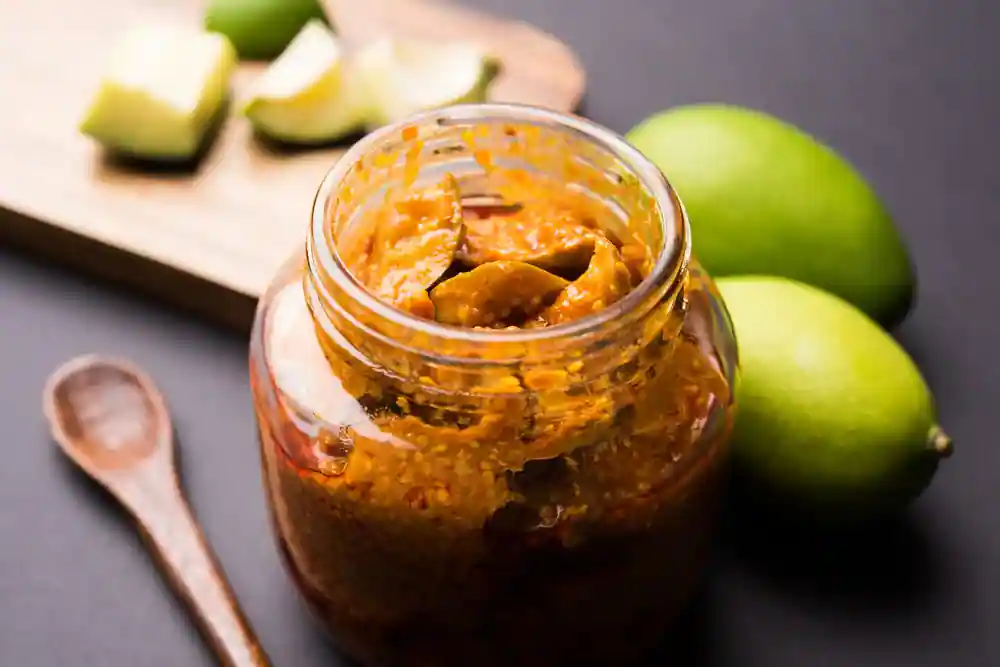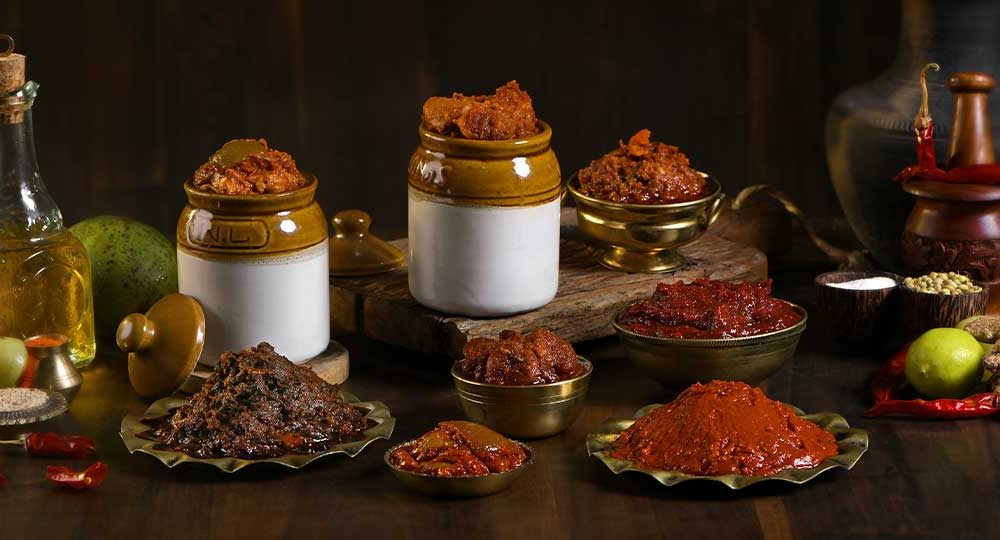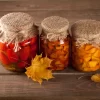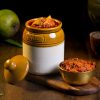Indian pickles, or achaar, are a timeless culinary delight that adds flavour to any meal. With Achaar Gali’s focus on traditional recipes passed down through generations, it’s easier than ever to enjoy homemade preservative free pickles without any artificial additives. Here’s a guide on how to make preservative-free pickles the traditional way, using natural ingredients just like our grandmothers did.
Why Choose Homemade, Preservative Free Pickles?
- 1) Health Benefits: Commercial pickles often contain synthetic preservatives that may impact your health. On the other hand, homemade pickles, especially preservative-free pickles, retain their natural health benefits and probiotic properties due to the fermentation process.
- 2) Traditional Recipes: Achaar Gali’s pickles are made using dadi ke nuskhe (grandmother’s recipes), ensuring authentic flavours and a rich cultural heritage in every bite. Ingredients like cold-pressed mustard oil and sun-dried fruits and vegetables allow the pickles to ferment naturally, enhancing their taste and nutrition.
- 3) No Chemicals, Just Natural Fermentation: Our process of sun-drying and fermenting ensures the pickles mature with a depth of flavour. This means that the pickles are without any chemicals, additives, or colors. The natural fermentation also promotes good gut health by fostering probiotics.

Key Ingredients in Making Traditional Pickles
- Mustard Oil (Kacchi Ghani Sarso Ka Tel): Known for its strong flavor and preservative properties, cold-pressed mustard oil is a staple in Indian pickle-making.
- Spices: Fenugreek, mustard seeds, fennel, and other spices are commonly used to flavor the pickles while also contributing to their preservation.
- Salt: Salt not only enhances flavor but also acts as a natural preservative by inhibiting the growth of harmful bacteria.
- Sunlight: Sun-drying ingredients before pickling them is essential. Sunlight naturally dries out moisture, which helps prevent spoilage and intensifies the flavors.
Step-by-Step Process to Make Preservative Free Pickles
- Choose Your Ingredient: Whether it’s mangoes, lemons, or jackfruit, start with fresh, high-quality produce. Wash thoroughly and pat dry.
- Sun-Drying: For fruits like mangoes and lemons, sun-dry the pieces for a few days until they lose moisture and become slightly shriveled. This step is crucial to prevent the pickle from spoiling.
- Spice it Up: Roast your spices (like mustard seeds, fenugreek seeds, and fennel) to enhance their aroma, then grind them into a coarse powder. Add salt, turmeric, and chili powder as per your preference.
- Mix with Oil: If you’re making an oil-based pickle, heat the mustard oil until it reaches its smoking point, then let it cool. Mix the dried fruit or vegetable with the oil and spices.
- Fermentation: Transfer the pickle to a sterilized glass jar. Seal tightly and let it sit in the sunlight for a few weeks to allow the fermentation process to occur. This will naturally enhance the flavor.
- Store in a Cool Place: Once your pickle has fermented to your taste, store it in a cool, dry place. Your homemade, preservative free pickle can last for months if the jar remains sealed and moisture-free.
Popular Preservative Free Pickles from The Jaipurco
At Achaar Gali, we take pride in offering preservative free pickles that are sun-dried and naturally fermented. Some of our best sellers include:
- Mango Pickle (Aam Ka Achaar): Made with the finest raw mangoes and a blend of spices, fermented in mustard oil.
- Jackfruit Pickle (Kathal Ka Achaar): A unique and flavourful pickle made from tender jackfruit pieces.
- Lemon Pickle (Nimbu Ka Achaar): Tangy and zesty, this oil-free pickle is made with lemon juice and spices.
Our pickles taste great and are packed with health benefits, supporting digestion and offering a rich source of probiotics. Buy authentic, tasty, and delicious pickles online.



